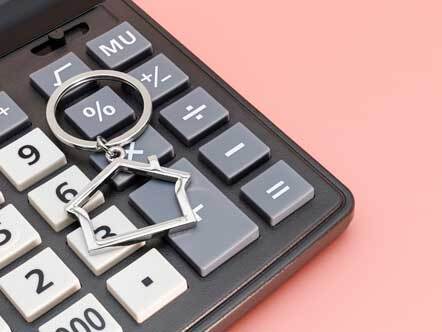Renting your first property can be very daunting as it may be your first time moving out of home or you may need to relocate for work so we are here for you at every step of the way.
We have put together a short guide for first time renters covering a few key points to take into account before you move into your first rental property.
You can also check out the government's How To Rent guide.
Don't rush into letting, do your homework, know your budget, the area you want and your requirements and ensure the landlord or agent has a good reputation.
Know your criteria - the first step is to set up a list of things that you want from the property. This will help you when speaking to an estate agent about your move as well as when you're reviewing property options. This could be as simple as a specific location for your commute or a parking space for your car or could be more detailed such as a dishwasher or include utilities covered in the rent.
Know your budget - whatever your reason for renting you will have a budget that you're working to. Make sure to check what costs you may have to pay upfront such as a deposit or rental fees as well as what the costs may be during the tenancy. Do your homework on likely utility costs, council tax and rental insurance you may take out.
You can use our budget planner to help you identify some of the ley costs.
Budget planner
Timescales - how long will you want the property for? Landlords will set different terms for their property rental periods. Some will be happy to do a short term such as 3-6 months whereas others will require a minimum of a year.
Sign up new property alerts - rental properties move a lot quicker than properties for sale so make sure you sign up for alerts to find out when new properties come on the market. You should also visit estate agents adn let them know what you're looking for and what your budget is. That way they will be able to tell you about any new properties due on the market. You can regioster for new alerts with The JNP Partnership through My Move. That way you'll always know what we have available.
Register with My Move
Choosing your agent - getting the right agent is important when choosing a property. You want an agent who has the right property for you and can give you the best help and support in securing the property and working with you to address any issues that may occur during your tenancy.
Viewings
Make time to view all the properties that you're interested in. In the current market we are finding that some properties are reserved at the first viewing, so make sure you have your finances in place so you can secure the property quickly.
When you're at the viewing make sure you take the time to have a good look round. Check the water pressure, find out how the heating works, check the size of the fridge, etc. If you're viewing a property and the previous tenants are still living there, make sure you know what's included and what belongs to them.
Know how the property is managed
A number of landlords will leave the day to day management to the estate agent so they will deal with any maintenance issues on your behalf. Other landlords will manage the property themselves. It's good to know how your property is managed so you're aware of who to contact if there's a problem.
Getting your finances in place
Make sure you're financially prepared to make decisions quickly. Once you decide to rent the property you will need to pay your administration fee to start your application.
References
We will apply for references in respect of each tenant using a professional referencing company. A credit check, Current/Previous Landlord’s (where applicable) and employer’s references will be sought. We will also check other details relating to your financial history.
Deposit
When agreeing to rent a property you will need to pay a holding deposit to secure the property and a security deposit to cover damages. The amount for each property will be shown on the property listing as a deposit and holding deposit amount as well as a link to any other Permitted payments. You can find out more about Permitted Payments here. We are required to keep your deposit safe.
Tenancy Agreement
You will receive the tenancy agreement before the start of the tenancy and we must receive the deposit in our bank account before the tenancy starts.
Income Protection & Home Contents Insurance
It's worth thinking about protecting your belongings and your income once you start renting. You can discuss income protection & contents insurance with our partner Embrace Financial Services.
Tenancy
Once the agreement has been signed and the standing order set up you may collect the keys on the day your tenancy commences. We will provide you with the Energy Performance Certificate, the Landlords Gas safety certificate (if relevant), contact details for your property and any emergency contractors details.
Move in
When we have received acceptable references and after consultation with the Landlord, a Tenancy Agreement will be prepared which both Landlord and Tenant are required to sign. Guarantors where applicable will be required to sign the Agreement. The guarantors will also need to sign a Deed of Guarantee
Inspections
If the property you are renting is managed by The JNP Partnership we will carry out property visits to make sure the property remains in good repair.
At the end of the tenancy
Tenancy renewal
Around two months prior to the end of your fixed term we will contact you to discuss your future plans. The process is similar to the start of the original tenancy and allows further commitment, planning and budgeting for another fixed term.
Notice and eviction
A tenancy runs until it is ended by either the tenant giving notice, or the landlord serving an eviction notice. As a tenant, the amount of notice you are required to give depends on the type of tenancy you have and your individual tenancy agreement. During the fixed term period of your tenancy, you can usually only end your tenancy early if the tenancy agreement has a break clause.
Providing there is no rent owing, and no cleaning or repairs are needed, your security deposit will be returned to you in full. If cleaning or repairs are required, these will be agreed between you and the landlord and the cost deducted from your deposit, with the balance returned to you.



